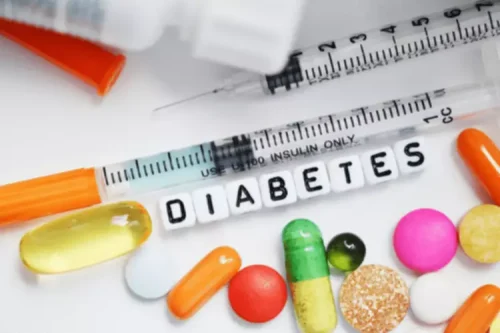
Disengagement becomes a problem when it’s the primary means of coping and becomes avoidance. It is a deliberate action where a person purposefully writes about their challenges with the express purpose of processing and finding a solution to them. Journaling deserves its own https://ecosoberhouse.com/ mention because it is a specific type of writing meant to help process one’s emotions, achieve goals, and process thoughts. Physical exercise is also a great tool for combating depression. And one can use lighter exercises to help work their way through sadness and pain.

Top ways to reduce daily stress
The more you practice self care, the better you’ll be able to handle whatever comes your way. Learn Your TriggersIt’s important to be aware of what stresses you out the most so you can prepare for or avoid those triggers. Pay attention to how you feel throughout the day- things that make you feel good and things that make you feel bad.

How to Curb Alcohol Cravings
The human – you – uses a logical and rational approach to solving problems. The chimp represents the fast-reacting, instinctual parts of the brain. It interprets information emotionally and often responds impulsively, frequently causing us problems.
Medical Professionals
- Suppose your anxiety is focused on a situation, such as worrying about an upcoming event.
- A 6-week study of 185 university students found that participating in aerobic exercise 2 days per week significantly reduced overall perceived stress and perceived stress due to uncertainty.
- The model suggests that coping strategies can be either problem focused or emotion focused.
- For example, do you wish you had a better work-life balance?
- The human – you – uses a logical and rational approach to solving problems.
But it can help you feel better, even if you have to force a fake laugh through your grumpiness. These may include drinking too much caffeine or alcohol, smoking, eating too much, or using illegal substances. These habits can harm your health and increase your stress levels. You may also find it helpful to incorporate some above-mentioned emotional anxiety coping strategies into your daily routine. No matter what’s causing your anxiety, developing a few coping skills can make all the difference.
Download 3 Free Resilience Tools Pack (PDF)
It is common practice for athletes to use imagery while they prepare for an event, practice a movement, or train while injured. A good practice at the end of each day for positively reinforcing successful performance is to write down and review three achievements, small or large, from the last 24 hours. Psychological research in the fields of sports, business, and beyond has identified approaches, skills, and tools that can help us cope, overcome, and even flourish.
Seek meaningful activities
Support groups specifically for depression serve as a way to connect with people who can personally relate. Many people are often more critical of themselves than they are of others. One exercise to extend more understanding and kindness to yourself is to consider how you would think about and act toward someone you care about if they were in a similar situation. Sleep deprivation is linked to depression, so it’s important to prioritize sleep. Getting seven to eight hours of uninterrupted sleep can help to alleviate and prevent depression.
- Socialization can help relieve stress, encourage feelings of laughter and togetherness, and decrease loneliness.
- Research shows that meditation is effective in relieving depression symptoms, and the benefits may last long-term.
- For example, listen to soothing music, make sure the area you sleep in is cool, dark and quiet, put phones and tablets away, and stick to a regular schedule.
- You might develop a mantra that you repeat in your mind as you take slow deep breaths.
- You can choose from a variety of techniques, such as deep breathing, guided imagery, progressive muscle relaxation and mindfulness meditation.
The original version contained 14 items and can be found in the original paper. Journaling is a valuable method for reducing stress and identifying patterns of behaviors and thoughts. One of the most healthy ways to cope significant advantages of journaling is that it is easy to implement and cost effective. In this worksheet, the client will list their top values and then identify specific actions aligned with them.

Everyone has different triggers, and identifying them is one of the most important steps to coping with and managing anxiety attacks. Imagining each side of a box, breathe in (side 1), hold (side 2), breathe out (side 3), and hold (side 4). The Mitchell Relaxation Method (Mitchell, 1990) has been around for decades but remains a successful and widely used treatment for patients with anxiety.
- Making some changes to your daily habits could be instrumental in helping you feel better.
- One key criticism of trying to categorize coping mechanisms is the overlap between categories, as many coping skills do not fit neatly into one category or another.
- These cognitive and behavioral efforts help individuals manage, tolerate, or sometimes reduce stressors.
- Sometimes, the best way to stop anxious thoughts is to leave a situation and get moving.
The model suggests that coping strategies can be either problem focused or emotion focused. Some moments in life are great, and some moments are… not so great. For these moments, big and small, we need a way to handle the emotions and decisions our circumstances provoke.

immediate skills for coping with anxiety
- People also refer to this condition as major depressive disorder.
- These methods, which may also be referred to as effective or adaptive strategies for coping, benefit the individual and do not result in damaging consequences.
- Writing down your thoughts and feelings can be a good release for otherwise pent-up feelings.
- Mental stress activates your sympathetic nervous system, sending your body into fight-or-flight mode.
- In this theory, social support is crucial for managing anxiety, because it helps ease feelings of anxiety and helps develop solutions to stressful environments.
If you feel like you feel more deeply than the average person and respond more intensely to stimuli, you may be a highly sensitive person. The best method for treating depression can vary depending on your needs and the severity of your symptoms. It can involve therapy, medication, and other practices that help you accept your own challenges and emotions. Notice and name your emotions and try to bring your attention to engaging in activities that are helpful instead of focusing on the emotions. Time in natural spaces may improve mood and cognition and lower the risk of mental health disorders.